October 16, 2024 | 23:36 GMT +7
October 16, 2024 | 23:36 GMT +7
Hotline: 0913.378.918
October 16, 2024 | 23:36 GMT +7
Hotline: 0913.378.918
At the farm of more than 5,000 pigs in Hat Lot commune, Mai Son district, Nguyen Cong Bac's family has strictly implemented vaccination against diseases from foot-and-mouth disease to traditional swine fever according to the instruction of the veterinary agency, frequently twice a year.
Particularly in the case of African swine fever, Bac's family is still in the process of researching so there is no official vaccination plan. For him, the health of the animals after vaccination is the key point which leads to his current worries.
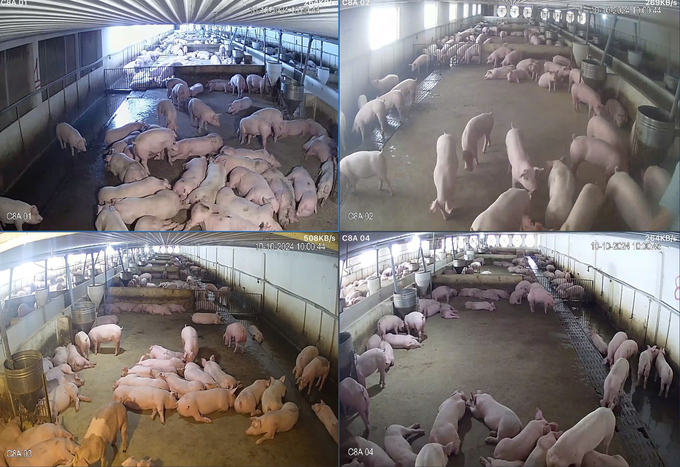
Nguyen Cong Bac sets up cameras at many angles to monitor the care process of the pigs. Photo: Duc Binh.
Bac is applying a method to mainly isolate the farming area and its caretakers. Those working at the farm must quarantine at their own homes near the farming area for at least two days before returning to work.
Before entering the barn, they must wear protective gear and follow strict disinfection procedures. The entire barn area is equipped with a surveillance camera system to monitor the livestock’s activities, ensuring that any unusual situations can be detected early and handled promptly.
Every month, inspection teams from the Sub-Department of Animal Health come to promote vaccination and collect samples for testing so as to detect the risk of disease outbreaks. The inspections help authorities get an overall picture of the health status of pig herds and be ready to take quick action when an epidemic occurs.
According to Nguyen Ngoc Toan, Head of Son La Sub-Department of Livestock Production, Animal Health and Fisheries, the vaccination against African swine fever in the area is facing many difficulties. "In general, we always listen to farmer’s concerns about vaccination against African swine fever. The isolation plan is not necessarily optimal when water or air sources can still transmit the disease".
Similar to the Bac’s pig farm, the It Ong Pig Farming Cooperative in Muong La district is also applying isolation methods to prevent disease. From the input stage, parent pigs are carefully tested to ensure that the piglets are born free of pathogens.
Piglets will be placed in quarantine for one month after birth. During this period, pig farmers must also quarantine their livestock to ensure all safety measures are followed before returning the pigs to the main barn.
In the situation when a pig dies, the cooperative’s technicians will conduct an inspection, take blood samples and send them to testing institutes in the hope of eliminating the risk of disease. Periodically, pigs between 16 and 20 weeks old will be sampled to test for factors such as preservative residues or pathogens.
Nguyen Duc Tien, Director of It Ong Pig Farming Cooperative, said that the vaccination against African swine fever proves to be challenging during this period. “We have not had the opportunity to conduct trial vaccination, which also makes us concerned about potential side effects of vaccines. Therefore, the temporary method of isolating and controlling the input is still our number one option”.
As of early October, African swine fever has occurred in 115 groups and villages of 51 communes, wards and towns. A total of 11 districts and cities are affected, including Muong La, Van Ho, Son La City, Yen Chau, Song Ma, Bac Yen, Mai Son, Phu Yen, Moc Chau, Sop Cop, and Thuan Chau. The number of pigs infected, dead and destroyed is 2,464 with more than 98 tons of meat lost. There are currently 9 communes in 4 districts with outbreaks that have not passed 21 days.
Districts have issued documents directing the drastic and synchronous implementation of disease prevention and control solutions in areas. Local authorities have organized the disposal of sick pigs, suspected sick pigs or dead pigs, and at the same time guided farmers to complete related documents and receive support according to legal regulations. The work of handling outbreaks is carried out thoroughly within a limited area to prevent the spread of the disease and the emergence of more households with infected pigs.
In addition to measures to isolate and suppress epidemics, districts continue to strengthen communication about the dangerous nature of animal diseases, the benefits of vaccinating livestock, instructing farmers to practice disease-safe livestock farming, and implementing disease prevention measures such as barn cleaning and disinfection.
Translated by Samuel Pham
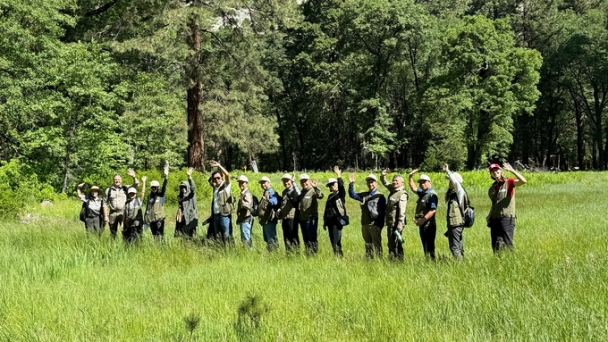
(VAN) The forestry sector of Vietnam's success and development are not solely attributable to its inherent assets; there is also significant support from international organizations like USAID and WWF.
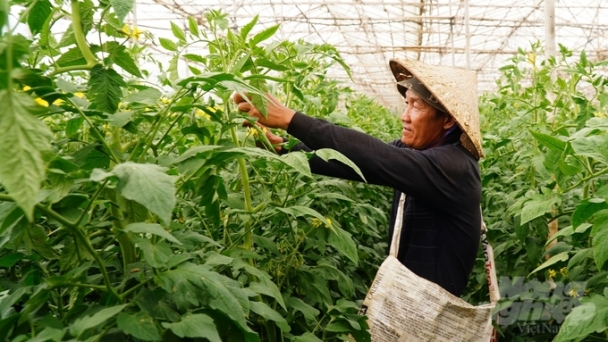
(VAN) The 2024 Sustainable Food Forum aims for a Net Zero goal, focusing on the development of sustainable agriculture, reducing greenhouse gas emissions, and protecting the environment.
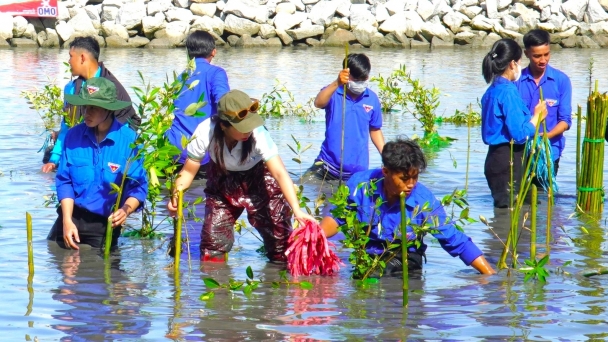
(VAN) Recently, not only local authorities but also international organizations have provided practical support to enhance the disaster preparedness and response capacity of the local population.
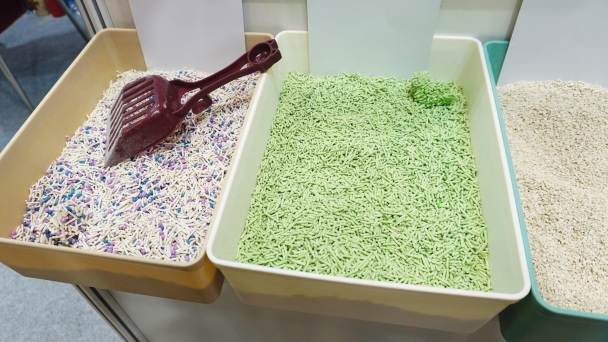
(VAN) 'Competition in quality between FDI and domestic enterprises and competition among themselves will become increasingly fierce,' said Dr. Vo Trong Thanh.
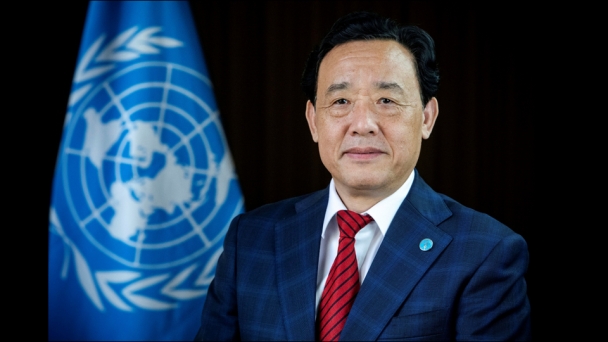
(VAN) It’s high time to turn the 'Right to Foods' for a healthy, nutritious and affordable diet into reality.
/2024/10/16/2923-2-162634_631.jpg)
(VAN) Timely implementation of solutions to prevent and control dangerous diseases in freshwater aquatic animals helps the aquaculture industry create sustainable economic efficiency.